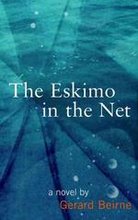Writers' Workshops - Greasy Bob's Damage Control
I have written before how writers’ workshops are in reality practice sessions for self-critiquing and as such may be of little benefit to the piece of writing being practiced upon. Indeed I stated that the piece may even be damaged in the process. Well take heart, a good facilitator/instructor is also well skilled in damage control. The downside? – It’s not easy to find a good facilitator/instructor.
So what sort of damage can occur and how can it be limited? Well that depends on the participants I suppose and what sort of vandalism they are allowed get away with. The main problem is that many of the people sitting around the table have no idea what it is they are supposed to be doing, or worse still think they do know and set about doing it. The first job of the instructor is to set up the workshop. Initially this means informing the participants that they are there to learn to become self-critics not to improve a specific piece of writing. If all the workshop did was improve an individual piece of writing, then what would a writer do with all the other pieces of writing they have written or will write – constantly bring it back to Greasy Bob’s Repair and Maintenance?
Indeed this is not uncommon. Many people return to writers’ groups week after week, year after year for this very reason. Unfortunately the mechanics there don’t know the difference between a gasket and a differential.
Once the participants understand why they are there, they need to be shown the process of critiquing writing. Otherwise the discussion will have little structure and will tend to focus on the least relevant areas of concern. In fact any instructor worth their salt will personally hang, draw and quarter any participant who brings up a point of grammar or discusses the content of the writing rather than its form. Writers who suggest ‘better’ choices of words should have their hands amputated at the wrist, and those who can personally relate to the story or poem are presumably too far gone to inflict any further mutilation.
Once the participants understand the objective of the workshop, they must then be instructed how to critique the work at hand. They need to be reminded of the formal elements of the piece whether it is a story, poem, memoir etc since it is those elements which will determine how well written the piece will be. All writers irrespective of their level of writing go back to the same old things. What is the story? Are the characters credible? Is the setting vivid enough? And so on. By examining the formal elements it becomes clearer what is already working well and what can be developed further.
However it is important that the participants provide argument for their opinions. It is not enough to say that the rhythm in a particular poem breaks down or that a character in a story is not developed enough. Examples need to be provided as support. In this way the writer can accept or reject the opinion reasonably. Most importantly, this hones the critical skills of the participants. It forces them to go beyond gut level feeling and articulate the reasoning behind the feeling.
The writer of the piece should not of course interfere in the critical discussion. Once again the instructor needs to step in here. If the writer interrupts to say, “what I really meant…” or “but that’s not the way…” a quick removal of the tongue should suffice. It is really important that the writer listens to the argument and thinks it over, mulls upon it over the next few days or weeks. Any defensive reactions must be overcome.
Furthermore when reading and responding to other people’s work sufficient time must be allowed to truly consider the critical response. If the writing is being presented for the first time at the workshop, it is hardly reasonable to expect a well thought out response. People are pretty much speaking off the cuff and their opinions should be distrusted. Ideally participants should read the work being presented a number of times over a period of days. The first reading is simply that – a reading of the piece. It should then be put away and read again the following day. This time the reader needs to engage critically with the writing. It is vital that the reader looks for the most important responses. There may be many things that could be said about the writing that would be helpful, but what is the most useful thing that could be said? It can take many readings and much thought for this to become apparent. There is no point polishing the kitchen floor if the house is falling down.
A well structured workshop does not always but can lead to the improvement of a particular piece of writing – at the very least the damage that would otherwise be inflicted can be limited. Most importantly, a well structured workshop will lead to a greater understanding of the craft of writing and will develop the necessary critical skills.









